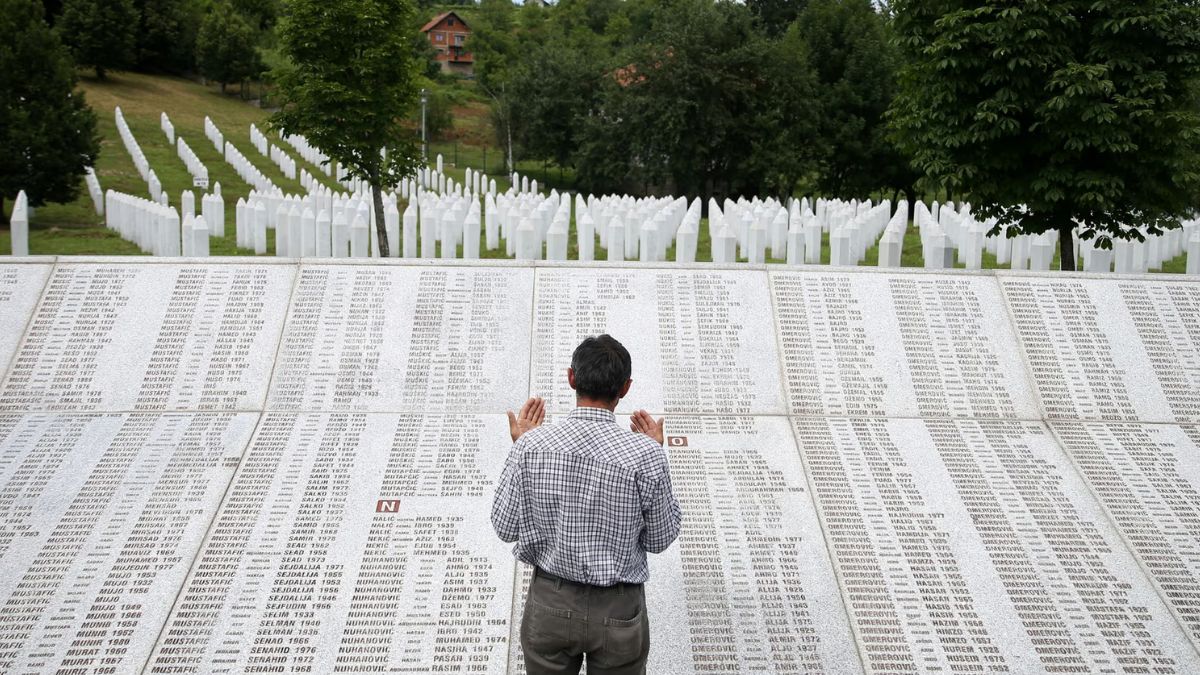A resolution to commemorate the 1995 genocide of over 8,000 Bosnian Muslims by Bosnian Serbs was passed by the UN on Thursday. Serbs are fiercely against this resolution, believing it will paint them all as “genocidal” sympathizers of the mass murder.
A total of 68 countries abstained from the vote, which resulted in an 84-19 vote in the 193-member General Assembly. This indicates that many countries were concerned about how the decision would affect efforts at reconciliation in the sharply divided Bosnia.
July 11, which will be marked annually beginning in two months, is designated by the resolution as the “International Day of Reflection and Commemoration of the 1995 Genocide in Srebrenica".
The president of Bosnian Serbs, Milorad Dodik, and the populist president of neighboring Serbia, Aleksandar Vucic, vigorously lobbied for a “no” vote despite the resolution, which is sponsored by Germany and Rwanda, not naming Serbia as the offender.
On July 11, 1995, Bosnian Serbs took control of a safe enclave in Srebrenica that was guarded by the UN. At least 8,000 Muslim Bosniak men and boys were murdered after being split up from their spouses, mothers, and sisters. Those who attempted to flee were pursued outside the town and through the mountains.
Bosnia’s 1992–1995 war culminated in the horrific Srebrenica massacres. The war began when Yugoslavia broke up, igniting nationalist fervor and territorial aspirations that pitted Bosnian Serbs against the nation’s two other major ethnic groups, Muslim Bosniaks and Croats.
Despite the fact that two U.N. courts have proven that genocide occurred in Srebrenica, both Serbia and Bosnian Serbs have rejected this.
President of Republika Srpska, the Serb portion of Bosnia that makes up roughly half of its total area, Dodik stated on social media on Wednesday that the country will be divided by the U.N. resolution, which is being imposed on it by supporters of the Muslim Bosniaks. He proposed that his administration would leave Bosnia if the resolution were to pass.
Impact Shorts
More ShortsDodik has already threatened multiple times to have the areas ruled by the Serbs break away from Bosnia and join Serbia, which is nearby. He and a few other Bosnian Serb officials are subject to British and American sanctions in part because they put a U.S. peace plan that put an end to the Bosnian war in jeopardy.
The General Assembly’s “unwavering commitment to maintaining stability and fostering unity in diversity in Bosnia and Herzegovina” was reiterated in the resolution’s final form.
The draft resolution includes the ruling made in 2007 by the International Court of Justice, the highest court in the United Nations, that the atrocities carried out in Srebrenica constituted genocide. It was the first genocide to strike Europe since the Nazi Holocaust during World War II, which claimed the lives of an estimated 6 million Jews and people from other minorities.
The day the Hutu-led government started executing members of the Tutsi minority and their allies is April 7. This is the official UN commemoration of the 1994 Rwandan genocide, according to Germany’s U.N. Ambassador Antje Leendertse, who made this announcement last week.
By designating a distinct U.N. day “to commemorate the victims of Srebrenica,” the draft resolution seeks “to close the gap,” she added.
The official day of remembering for the Srebrenica atrocity is July 11. Menachem Rosensaft, an adjunct professor at Cornell Law School and the son of Holocaust survivors, told The Associated Press on Wednesday that this “is a moral and legal imperative.”
The slain Muslim Bosniaks deserve to have their deaths and the manner of their deaths commemorated and Srebrenica was supposed to be a safe area but was abandoned by Dutch U.N. peacekeepers, leaving the Bosniaks who sought shelter there “to be murdered on the U.N.’s watch," Rosensaft said.
Richard Gowan, U.N. director of the International Crisis Group, called the timing of the vote “unfortunate, given allegations that Israel is pursuing genocide in Gaza.”
“The vote will be an opportunity for more political theater,” he told The media.
“I expect Russia and China will make a great point of asking why the U.S. and European governments are concentrating on a massacre in the 1990s rather than killings in Gaza today.”
)